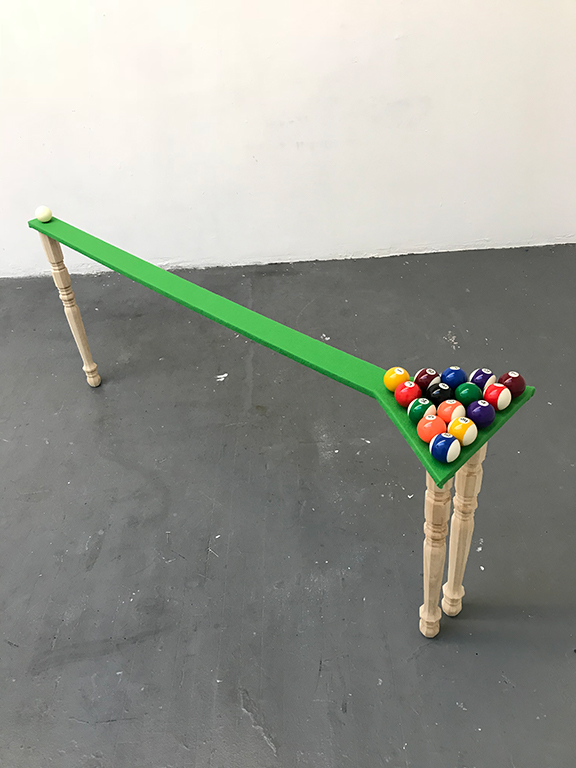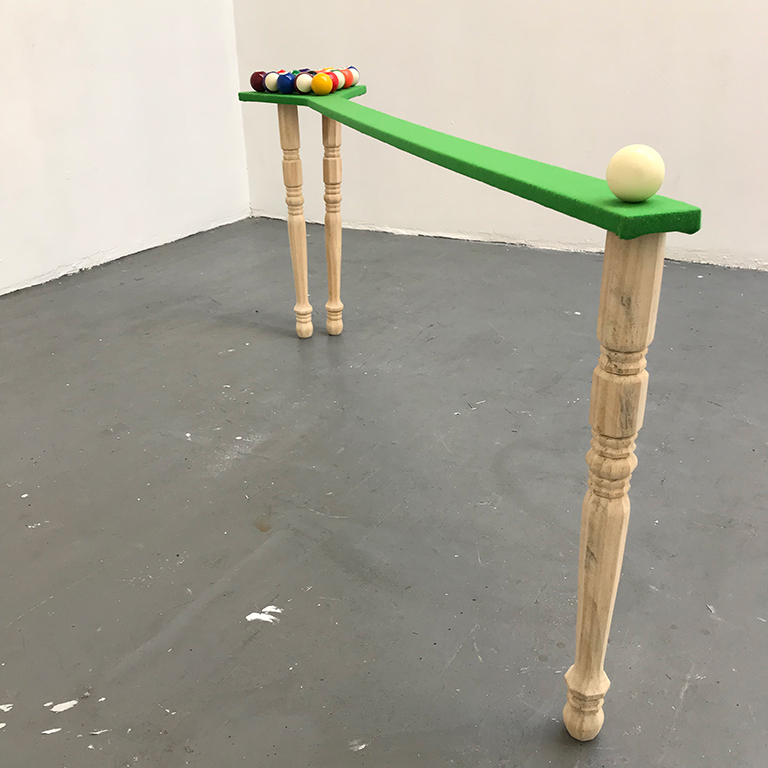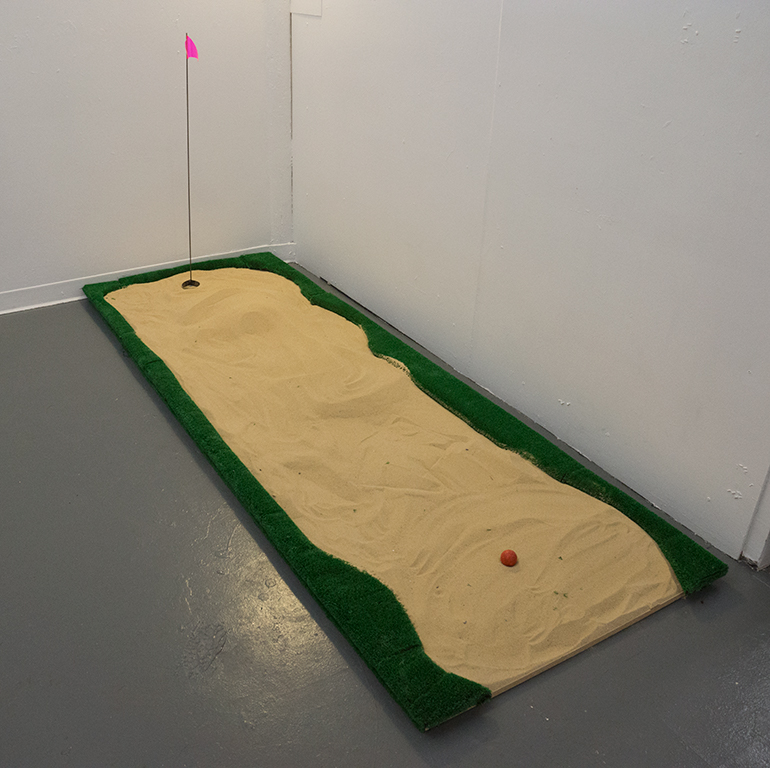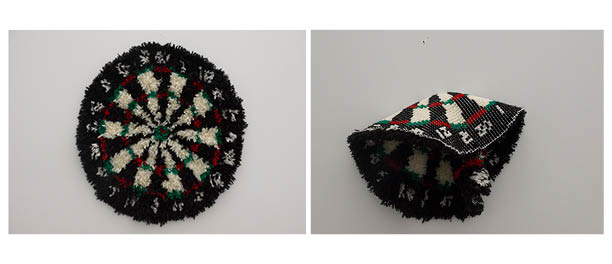www.emilyhirschtick.com

Why Ruin a Good Thing?
Felt, pine, MDF, balls
12” x 30” x 6’
2019

Why Ruin a Good Thing?
Felt, pine, MDF, balls
12” x 30” x 6’
2019

It Gets Better
MDF, astroturf, 250 lbs of play sand, steel, vinyl, golf ball
9’ x 3’ x 4’
2019

Chicago Style
Paint roller, wool, velvet, yarn, rope, push pins
12” x 3”
2018

Dead Center
Latch-hooked yarn, the original pattern
18” x 18”
2019
Wait For It...
(video documentation of installation)
Maple, Heineken bottle, servo motor, christmas lights, nail polish, speaker, audio (a 30 minute loop of the first 4 chords of “Kiss Me” by Sixpence None the Richer)
2019
As an artist, writer, curator, and party-thrower, I am essentially interested in concepts of play, sacred social spaces, community building, and collective nostalgias. My thesis work, “Games You Can’t Play” focuses on the aesthetics, architectures, and social rituals of games and competition, taking up as its main question: “what can we get from games we can’t play?”. My interest in games comes first from my family history and childhood, wherein sports and games served as inadvertent coping mechanisms or distractions, sites of connection and celebration, and platforms through which to channel deeper misdirected emotions and trauma. In a broader, social sense I am drawn to the drama, superstition, and desire for the community which drives gameplay and fandom, both for the players and the spectators. I look to games as metaphors especially to communicate queer and nonbinary experience, referencing the makeshift, re-hierarchizing, experience of creating one’s own community or making up one’s own rules. In interrogating the overlapping themes involved in gameplay and queer embodiment, this series inevitably addresses concepts of camp and exaggeration, temporality, liminality, risk, and pleasure. At the end of the day, my thesis work is centrally concerned with fun in all of its complexities, and challenges viewers, as well as myself, to reconsider something as seemingly solidified as age-old games and their many rules as a site for radical experimentation and community.


